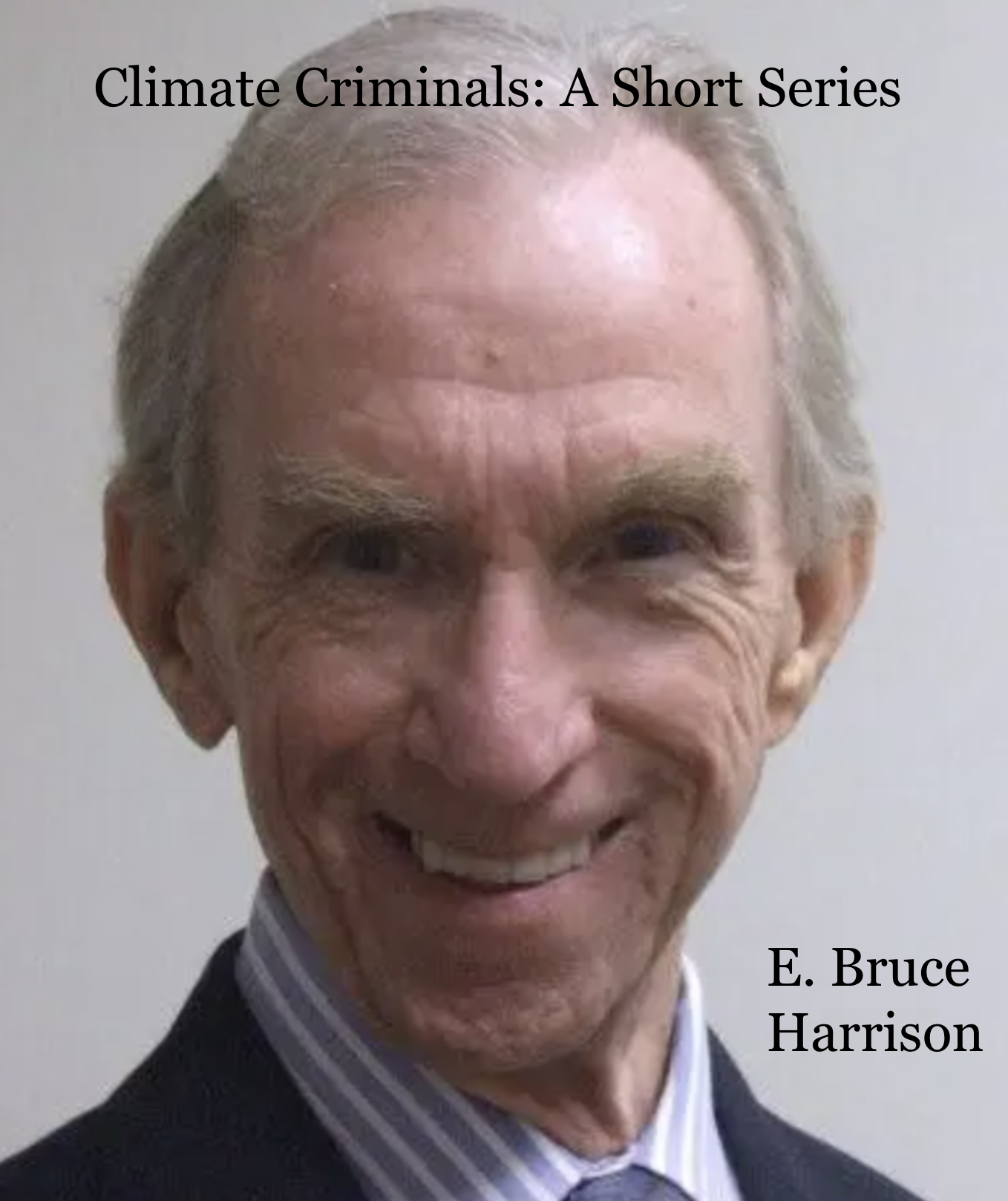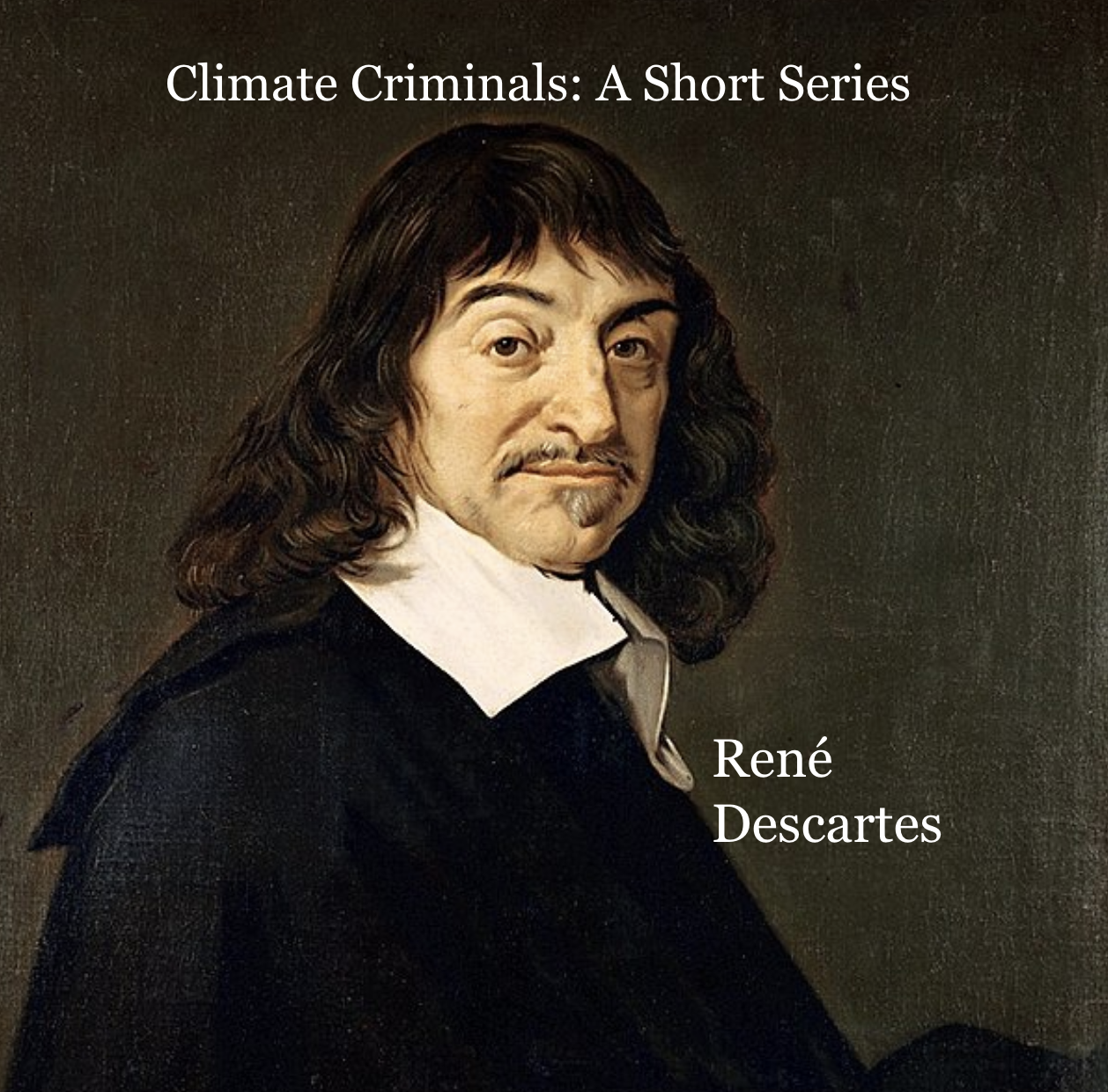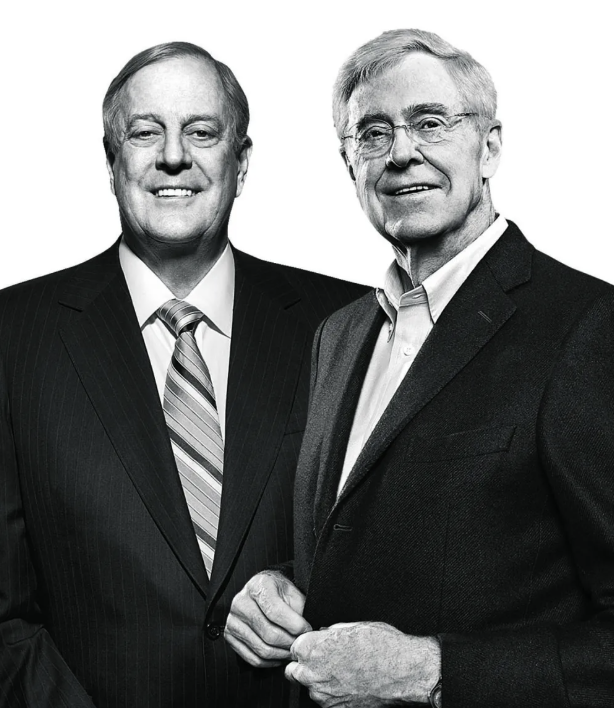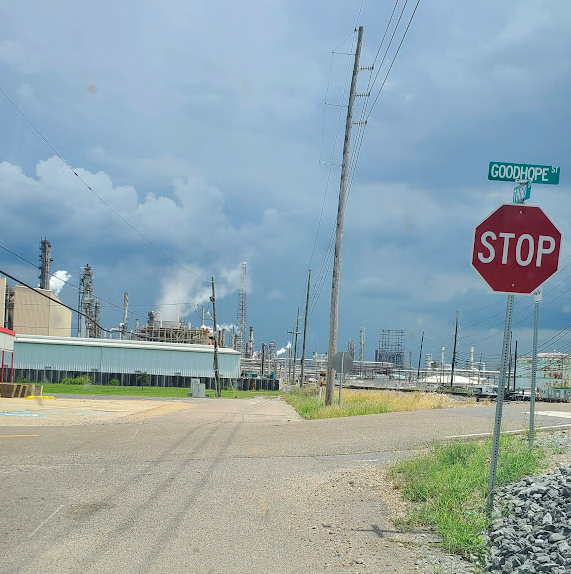
Climate Criminals: E. Bruce Harrison
By now, it’s no big secret that fossil fuel corporations funded the billion dollar disinformation campaigns of the last 40 years, sowing the seeds of climate denial. But these sprawling disinformation campaigns had the support of so many organizations and companies, it becomes hard to pinpoint the person in the driver’s seat. But in many respects, public relations professional and author E. Bruce Harrison designed and steered the climate change denial campaigns that shaped the political and ecological landscape where we currently live. E. Bruce Harrison is considered the father of greenwashing. In fact, he wrote the book on it—2 books actually: Going Green: How to Communicate Your Company’s Environmental Commitment (1993) and Corporate Greening 2.0 (2008).

Climate Criminals: René Descartes
Since Descartes had no concept of greenhouse gas emissions or global warming while he was writing his famous Meditations, it is unlikely that he could predict our current ecological crisis. He was writing one hundred years before the invention of the steam engine and two hundred years before the combustion engine. But if you conceptualize the issue of climate change as a single entity, you would find René Descartes’ philosophy in the deepest roots of today’s ecological crisis.

Climate Criminals: Charles and David Koch
The Kochs are a 20th century petrochemical family that has grown into a conglomerate, owning over 20 businesses, and operating hundreds of facilities in over 50 countries globally, including four oil refineries and 4,000 miles of pipelines across the United States. But it isn’t just their legacy of exploiting loopholes in the Clean Air and Water Acts or the hundreds of millions of metric tonnes of CO2 that they pump into the atmosphere that earned them a place on this list.

Climate Criminals: A Short Series Presents John H. Sununu
John Sununu’s role in the climate crisis is an example of being at the right place at the right time. From 1989-1991, Sununu was President George H. W. Bush’s chief of staff and a tireless contrarian when it came to the relatively new research regarding climate change. The first Intergovernmental Panel on Climate Change (IPCC) report was released in 1990, and John Sununu is disproportionately responsible for the United States’ dismissive response to it.

The Imperial Boomerang
Imperialism usually happens in a separate place; it’s an overpowering of “the other.” All of its unpleasantness falls on the shoulders of the colonized, not the colonists. But Martinican poet and politician Aimé Césaire noticed imperial barbarism usually travels like a boomerang, eventually returning home to the colonizers’ doorstep.
Neoliberalism, Shock Doctrine, and Dear God It Has Only Been Like a Week
Naming a thing doesn’t make it disappear. In fact, naming something can be reductive, intellectualizing or oversimplifying things in a harmful way.
But when I’m trying to work through an enormous and sticky problem, one that’s hard to see because it’s a hyperobject—so big that it’s everywhere all at once—sometimes I need the reductive power of naming something. Even if it’s just to help me get my bearings or help me get unstuck. Naming something helps me pull my imagination back from the narrow, one way path my fear consigns it to.
So here goes:
This past week has been a textbook example of neoliberal shock doctrine.

The Necessity of Ecological Grief
Ecological grief is the feeling of profound loss one experiences when a landscape, species, or ecosystem changes significantly or is destroyed. (See also solastalgia.)
As we continue to move out of the relatively stable environment of the Holocene and further into the climatic chaos of the Anthropocene, we will experience ecological grief more and more.
And it’s so important that we don’t avoid it.

It’s not resilience; it’s capitalism's brutal and unceasing demands.
The immediate expectation of resilience from New Orleans is another reminder that the city sits in a sacrifice zone.

Slow Violence
Our ability to recognize something as violent depends on how that violence is spread through time and space.

The Weird Invisibility of Oil
Considering how central oil is to our daily lives, it’s easy to forget that most of us rarely see actual oil. Maybe on a paper towel if you check your oil before a long road trip or in the rainbow sheen on the water surface by a boat launch. Our engine oil is dealt with by mechanics who dispose of it for a fee. We hardly ever see the gasoline (an oil derivative) that goes into our cars since it goes from the pump to our tanks; if it sees the light of day, it’s because we’ve been clumsy. Even before we get to the gas station, gasoline is pumped from tanker trucks into the ground tanks below. Unless your job regularly requires it, if you’re looking directly at oil or gasoline, it usually means that something has gone very wrong.

Capitalism’s Bad Rhythm
It is easy to forget that time exists differently for people than it does for other species and ecosystems. (If you’re not following me, think about dog years. A human day is like a dog week; a human year is like 7 dog years.) It doesn’t help that our man-made economic systems are the most prevalent keepers of time today—and also the most destructive force on the planet.

(deep)Time and (liminal)Space
Even if you’re unfamiliar with the term liminality, you’re definitely familiar with the experience. French ethnographer Arnold van Gennep’s concept of liminality is an experience of existing simultaneously on both sides of a boundary–existing inside of a transition.
![[Because Capitalism] Is Unimaginative And Ursula Le Guin Is Not](https://images.squarespace-cdn.com/content/v1/646ce5f6c593f35076f7b90e/1711056905537-AHHUW7X56TS8XGLY1CLN/Screen+Shot+2024-03-21+at+3.38.43+PM.png)
[Because Capitalism] Is Unimaginative And Ursula Le Guin Is Not
Historically, capitalists claim that a free market economy promotes ingenuity. That the competition and consumer demands of capitalism inspires creativity, but regulations hamper the development and exchange of these creative goods and services.
And maybe that was true in the earlier stages of US capitalism, back when corporations were project-oriented. Back when they applied for individual government charters whenever they wanted to develop something new and then disbanded once that project was completed. Those long-ago days before they were behemoth entities with religious freedom and 1st amendment rights.

It’s like David and Goliath…
Except Goliath is a multinational corporation with more sovereignty and a bigger economy than most countries, and he uses that power to grow global inequality while simultaneously making the planet inhabitable to most living creatures…but yes, just like David and Goliath

Pathologizing protest is self-soothing for the collective conscience
When we pathologize protesters–dismiss them as mentally unstable–we give ourselves permission to stop thinking about them.
Writing off their demonstrations as crazy is an attempt to detach their actions from their message. Especially when their message reminds us of something we’d rather not think about.

Why Louisiana is Always Last
Like the climate crisis itself, it’s difficult to make this comprehensive graph small enough for social media platforms, but the small font on the left lists the states in alphabetical order.
Louisiana is easy to spot even if it’s hard to make out the text. 🎶 One of these things is not like the other, one of these things doesn’t belong 🎶

If Louisiana’s Hungry Children Were Oil and Gas Companies, Jeff Landry Would Feed Them
This past week, Louisiana’s new Governor Jeff Landry made the unilateral decision that the state would not participate in the EBT program that feeds 600,000 food-insecure children over summer break. Landry is opting out of the federally-funded program that would help feed Louisiana children in order to save the $7 million dollars his office claims it costs the state to run the program.

Existential Fear and the One-track Imagination
For the last two years, I’ve been working on a climate fiction novel set along the Lowermost Mississippi River. It is difficult to stay in a fictional narrative space when I’m writing about the very real climate crisis. It’s hard to world-build a place in my imagination when the real world seems to be burning and drowning, and dying around me.

Nature Doesn’t Owe Me Comfort (and also somewhere else is nowhere)
My favorite moment when I’m hiking or kayaking is the moment when the landscape seems to pull me in and swallow me up. If I’m in the woods, it feels like the trees have closed up behind me. It’s such a palpable feeling that I’ve even looked over my shoulder a few times to make sure the path is still clear. It’s the moment when I imagine I’ve stepped away from society and have entered the wild. It’s similar to that moment on a plane when you get just high enough off the ground that there’s a feeling of separation; you’ve entered a different kind of space and time, an otherness that removes you from your usual existence.

Emissions Accounting Framework and How Big Oil Uses It To Fake a Green Narrative
When major oil companies talk about cutting carbon emissions, they aren’t technically lying. But they also aren’t telling the whole story—in fact, they are usually leaving out about ⅔ of the story.
To better understand what these major oil companies are promising, we must first understand what’s called the Emissions Accounting Framework. This structure separates a company’s carbon footprint into three categories known as the Burn, Buy, or Beyond scopes.